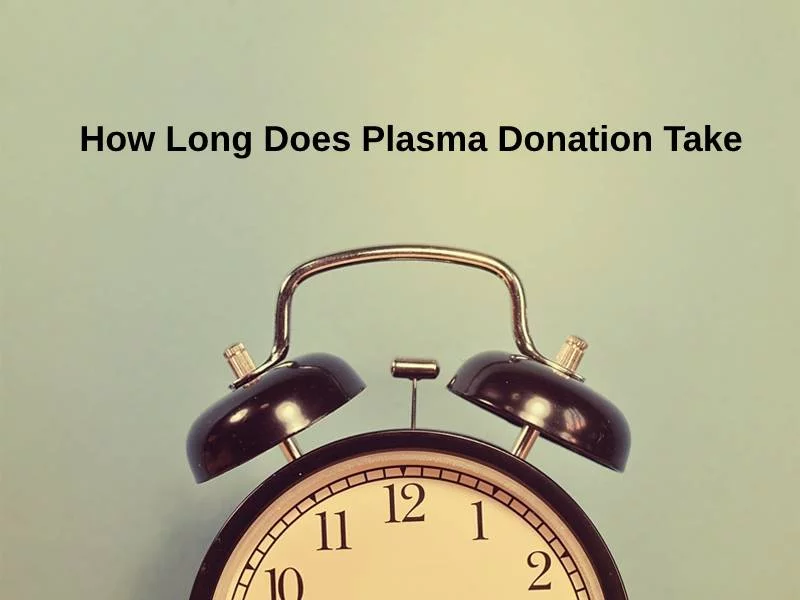Exact Answer: 2 Hour And 30 Minutes
Plasma donation is the donation of the liquid part of the blood. This process is better known as plasmapheresis. Plasma collected from such sources is most prominently used for research or medication purposes.
Millions of people around the globe need plasma transfusion. This is critical to save their lives. Generally, People suffering from road rage incidents or simply any harmful causes leading to immense blood loss are in urgent need of plasma donation.
The plasma obtained by such donations is also useful in research processes. Researchers use it for many path-breaking studies in the field of medical studies. These studies further help to improve the quality of human life.

How Long Does Plasma Donation Take?
| Plasma Donation Steps | Time Taken |
| Preliminary check-ups | 10-15 minutes |
| Plasma Donation | 2 hours |
| Recovery Time | 15-20 minutes |
The entire process of plasma donation takes up to two hours. However, sometimes it could well stretch beyond the two hours.
Plasma donation is a very delicate process. The donor needs to be prepared for the blood donation, both mentally and physically. There are three stages in the process: preliminary check-ups, plasma donation, and recovery time.
Preliminary check-ups take up less than a quarter of an hour. At this stage, the donor is required to go to the donation site and register himself as a prospective plasma donor. The medical staff then asks him certain questions about his general health and conducts tests like pulse and blood temperature.
Plasma donation is the longest and the main stage of the blood donation process and takes about two hours. When the donor walks into the donation room, the attendant shall clean the site of plasma withdrawal. Next, the medical staff inserts the sterilized needle in his veins to draw the blood which later segregates into plasma, red blood cells, white blood cells, and platelets.
The recovery time is the third stage in the blood donation process. It takes about 15 minutes or a quarter-hour. This stage is very useful in replenishing the energy of the donor and helps him recover from any dizziness or signs of fatigue.
Why Does It Take So Long To Donate Plasma?
A blood donation does not take up more than 15-20 minutes. However, if the donation is especially for any particular components of blood like plasma, platelets, or leukocytes, it may well exceed that time frame. Such donation has a different process as their results are different.
The donations which have certain specific components of blood as their result are known as Apheresis. In this context, the donation of plasma is known as Plasmapheresis.
In regular blood donations, the blood collected by the needle passes on to the bag. However, in plasma donation, this blood passes through to a tube to a special machine rather than the bag. It is here that the machine separates the various components present in the blood.
Plasma is separated and distinguished from its sister components platelets, red blood cells, and leukocytes. Once the plasma is separated and stored in a bag, the machine reinfuses the rest of the blood components back into the blood.
This process of plasmapheresis differs when the donation is made for any other component of the blood. This difference further leads to a difference in donation time for different components.
As is noticeable, plasma donation is a very complex process. This requires blood to be first removed from the body, gets segregated by the machine into its components and the rest of blood then gets back to the body. This requires more than two times the time required in the general blood donation.
Conclusion
Plasma donation takes a minimum of two hours. Combining with the registration formalities, preliminary check-ups, and the time for recovery, this process may take an extra hour.
A person who is in good health, above 50 kgs, and above 18 years (or as required in your province) is considered good for plasma donation. This requirement may also differ from the component of blood donating.
The donation of plasma is a noble act to do. It would either help to save some serious patients or in the future, for some award-winning medical researches.